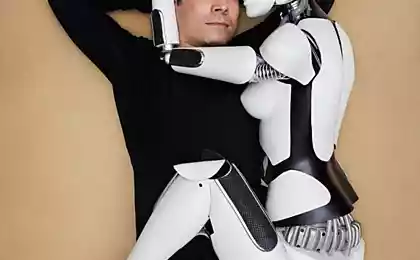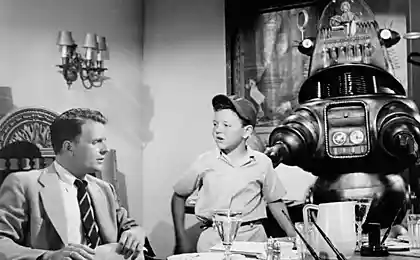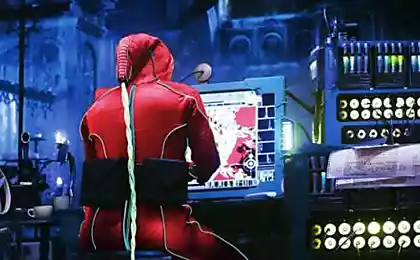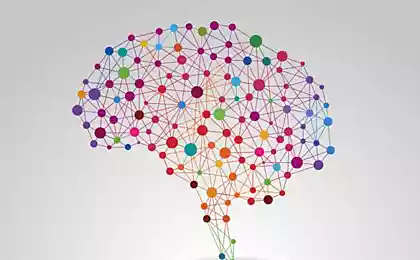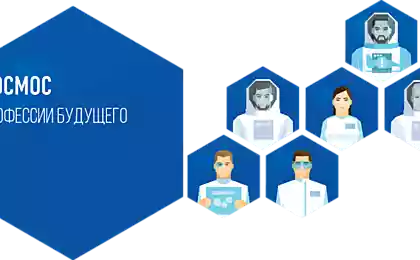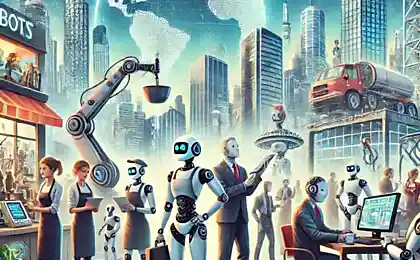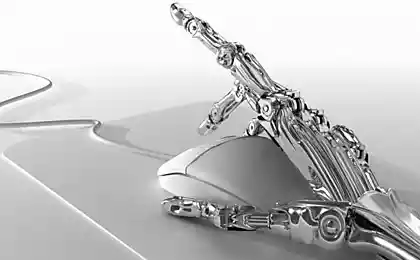539
On the machine: why computers threaten our intelligence
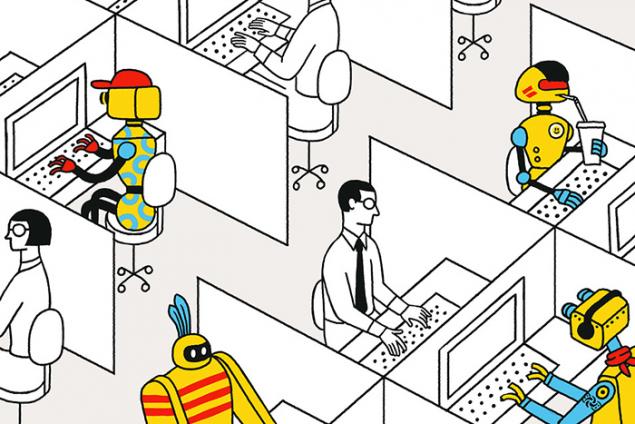
© Luci Gutiérrez
In the mid-twentieth century began a large-scale automation of work in many industries. Today, computers are replacing humans in aviation, medicine, architecture and other professional fields. Technologies help to increase efficiency and get more profit, but they take away from man the most interesting and creative tasks, leaving only routine and mechanical work. But can machines to completely replace humans? And how to prevent their invasion in those areas requiring creative thinking, intuition and the ability to quickly make decision in abnormal situation? T&P was translated an article by Nicholas Carr in The Wall Street Journal. With the advent of artificial intelligence much of the world has changed. Today's computers are accurate, recognize the environment, solve complex problems, make subtle observations and learning by experience. They do not think like us, and still dead like toothpicks, but they can play many rare and valuable skills of the person. Spellbound by these magical new machines, we readily gave them all complex production tasks that were previously performed themselves.
But is the growing credibility of computer automation can be costly. Various alarming fact is that we gradually lose your mental capacity and become more dependent on artificial intelligence. It seems that smart technology makes us dumber instead of to raise to a new stage of development.
This did not happen overnight. The first wave of automation rolled through U.S. after World war II, when the factories began to install the electronic equipment. With the new cars work became more efficient and companies started to get more profits. Machines have also become liberators. They are meant for people with more than just improved performance. They liberated manpower from routine tasks and give people the opportunity to do more live work and develop more valuable skills, and talents. New technology has elevated and ennobled workers. Later, in the 1950-ies, Professor at Harvard business school, James bright were interested in how automation affects different areas of industry, from oil refining to bread baking. He found that the conditions in the factories is not inspiring. Because of the new equipment work more often get a boring, low-skilled work. For example, an automated milling machine craft a locksmith become more creative, and simply pressing buttons. Bright came to the conclusion that the main effect of automation (in terms of labor Economics) — decrease in skilled workers, not increase it. "The lesson from this is simple — he wrote in 1966. — Sophisticated equipment does not have to manage skilled workers. All skills can be built into the machine itself".
Today we are seeing the same picture, but on a larger scale. Programs have learned to analyze and make decisions, and automation has moved from the world of industry into the world of offices and white collar. Computers now perform highly skilled work requiring specific knowledge, which has always been considered the prerogative of educated and experienced professionals. Pilots trust computers to pilot planes, doctors use them to diagnose diseases, architects have designed buildings using computer programs. A new wave of automation has affected everyone.
Computers not taken all the work of talented people, but they change the workflow. More and more we are convinced that dequalification affected in the last century, factory workers begin to kill even the rare professional talents. Yesterday the operators in the factories today is just run by computers.
"Pilot, have not drove the plane manually, are more likely to make mistakes in case of emergency"
Just look at the sky. 100 years ago invented the autopilot, and the flight became safer and more efficient. The system was developed in the 1970-ies with the advent of fly-by-wire control system. But today, experts are worried about, not whether we went too far. So many task management plane was shifted from the person to the computer that pilots are losing their proficiency, gradually lose the skills.
Even minor loss of manual skills of aircraft control can lead to tragedy. The pilot, have not drove the plane manually, are more likely to make a mistake in case of an emergency. Pilot error related to automation have led to several recent accidents, including the crash of continental flight 3407 in Buffalo in 2009 and the fall of Air France flight 447 in the Atlantic ocean, and to the failed landing of Asiana flight 214 in 2013, in San Francisco. At the end of last year a report was published by the Federal aviation administration, which says that more accidents occur due to over–confidence of the pilots control. Pilots used to just watch as events unfold and react to what has happened the situation, instead of ahead and warn events. The Federal aviation administration now requires airlines to spend more time flying with manual control.
Computer systems evolve, and the people that use them, on the contrary, fewer seek to perfect their own knowledge. This is often blamed application programs which provide the user with many hints and tips. Simple, less sophisticated programs make people to think more, to act more actively and learn. Our skills are developed only if they practice, if you use them regularly and solve their complex challenges.
The task of modern software is to make our lives easier and get rid of these loads. Programmers often automatiseret that heavy, labor-intensive work, because it's faster only able to increase the efficiency and make a profit. In other words, there is an active struggle for the interests of developers of software products and their users or operators.
However, automation continues to spread to different areas. With the advent of electronic medical records doctors heavily rely on software templates that help them to deal with patient data. The program contains valuable checklists and alerts, but they are also turning medical practice into a routine and formality, and distance doctors from their patients. In 2007-2008, new York Professor Timothy Hoff conducted a study on this subject — he interviewed more than 75 physicians, using a computer program. According to them, because of the computer equipment, they have become worse to understand their patients and have lost the ability to make informed decisions regarding diagnosis and treatment.
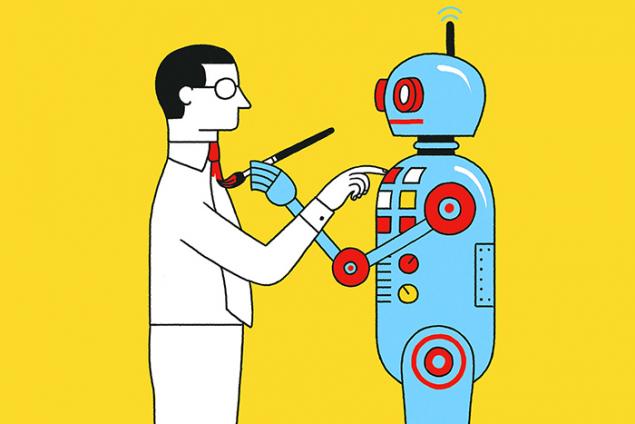
In his article, 2012, Professor Harvard medical school Beth lone notes that doctors now listen more tip computer than the complaints of their patients. In the worst case this can cause doctors to miss important diagnostic symptoms. Even creative professions suffer from deskilling that comes with automation. Thanks to computer design architects can now build buildings of unusual forms and unusual materials. But if you use computers at too early stage of the project, lost a sense of aesthetics, and we miss important things that can only be noticed when sketching and modelling by hand.
Manual labor, as shown by psychological research, helps better reveal the originality of the artist, improves working memory and increases the sense of touch. "The notebook is an amplifier of brain activity," says Nigel Cross, a Professor at the Open University, UK.
Professor of architecture at the University of Miami Jacob Brillhart (Jacob Brillhart) wrote in his article in 2011 that modern computer systems are able with incredible speed to turn a lot of technical data into accurate 3D models, but this are more commonplace and "flat" projects, lacking sense, imagination and feelings. However, this situation cannot be tolerated. Automation should not eliminate the complex problems of our work and ruin our ability. These shortcomings are due to the fact that programmers and engineers mainly use machineoriented approach to automation. When system developers begin the project, they primarily assess the ability of computers to shift to the program as possible. The operator works with what's left: as a rule, it is a relatively passive tasks such as data entry, stereotyped actions and control over the monitors. This approach is a vicious cycle that leads to a permanent reduction in training. Addressing challenges in the work leads to deskilling and greater likelihood of error. When such mistakes happen, the developers are trying to further limit the human responsibility, thus starting a new cycle of deskilling.
But there is a way out. Human-centred approach to automation is at the forefront of professional qualities. The system is designed so that the operator always remain in "cycle of decision-making" as it is called by the developers. This is an ongoing process consisting of actions, reactions and evaluation. Due to this, employees do not lose focus and concentration involved in the process and perform difficult tasks that develop their professional skills.
In this model, computer programs play an important but secondary role. They rely on repetitive tasks already mastered by the operator, they warn about occurrence of unforeseen situations, provide fresh information that expands the vision of the operator to report errors in the process, because of which people often make bad decisions. Technology becomes an ally of a professional, not replace it.
"Robots can't imitate human insight, ingenuity and intuition, honed through hard work and complemented by real life experience"
For translation automation in a more humane plane does not require any technical breakthrough. You just need to shift priorities and take a fresh look at the strengths and weaknesses of the person.
For example, the airline could program the computers in the cockpit so that the flight time was the periodic change of manual and automatic control. Flying could become even safer if the pilot was always on the alert. As for medicine and other professions, the program could be much less to interfere in the work of professionals and to give people the opportunity to Express their opinions before offering solutions based on certain algorithms.
Human-centred approach to automation does not hold back progress. On the contrary, it displays the progress in a more humanistic way and struggling with all too common, anti-human approach, which is based on the worship of the computers and neglect of people. One of the most inspiring examples of this approach — adaptive automation. It uses modern sensors and interpretation algorithms to monitor physical and mental States of the person, and this information is then used to switch tasks and functions between man and computer. If the system senses that a person works with a complex process, it shifts more tasks to the computer so as not to distract the operator. But when she realizes that the interest of the operator is extinguished, the system shifts the burden on the man to attract his attention and to practice professional skills.
We are fascinated by computers, and there is nothing wrong. But this craze should not lead us to underestimate our own talents. Even the smartest software lacks the common sense, ingenuity and brightness, which have with a qualified professional. In airplanes, offices, medical offices, the people remain indispensable. Robots can't imitate human insight, ingenuity and intuition, honed through hard work and complemented by real life experience. If we allow our abilities to disappear and will continue to rely on automation, we will become less talented, less flexible and more dependent on machines. We will create a world more fit for robots than for us.
Source: theoryandpractice.ru
Healing in the air - delicious recipes essential oils with your hands
Fungi of the genus Cordyceps – those that turns insects into zombies









